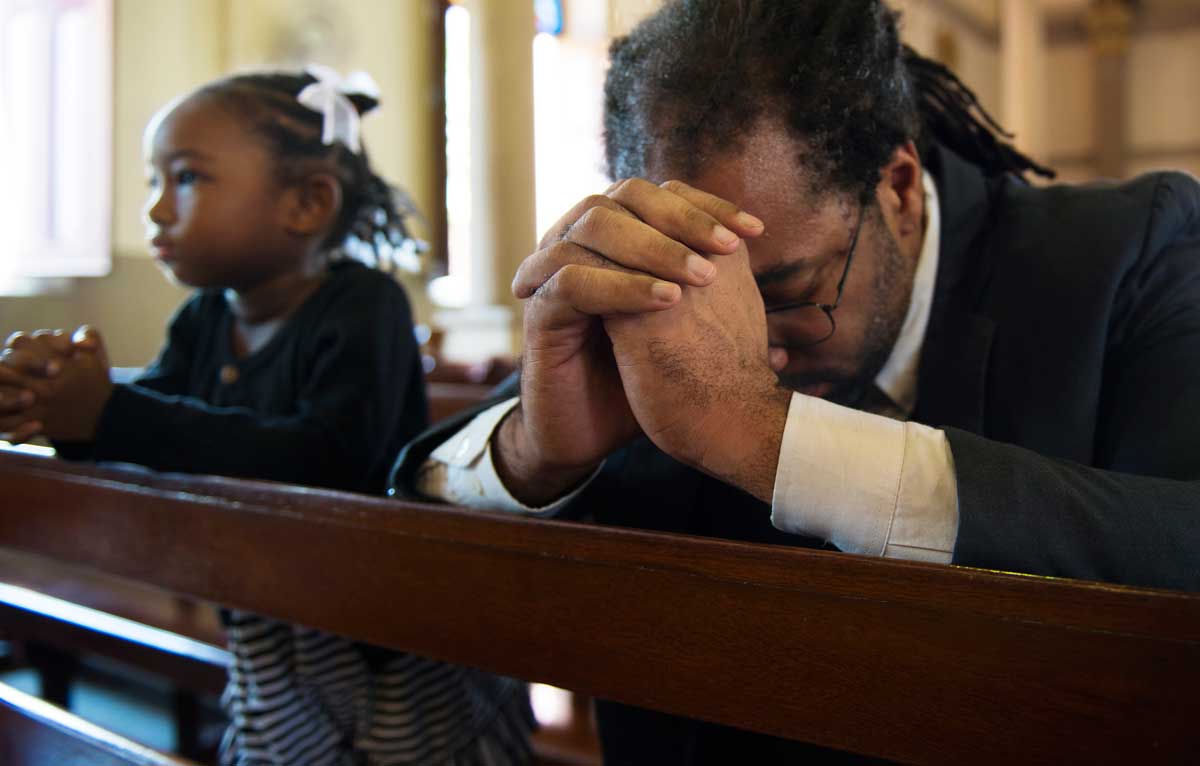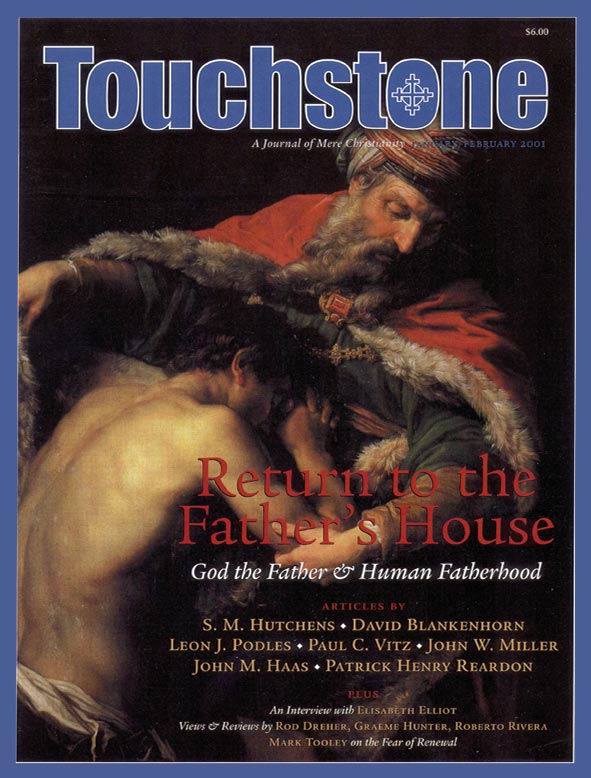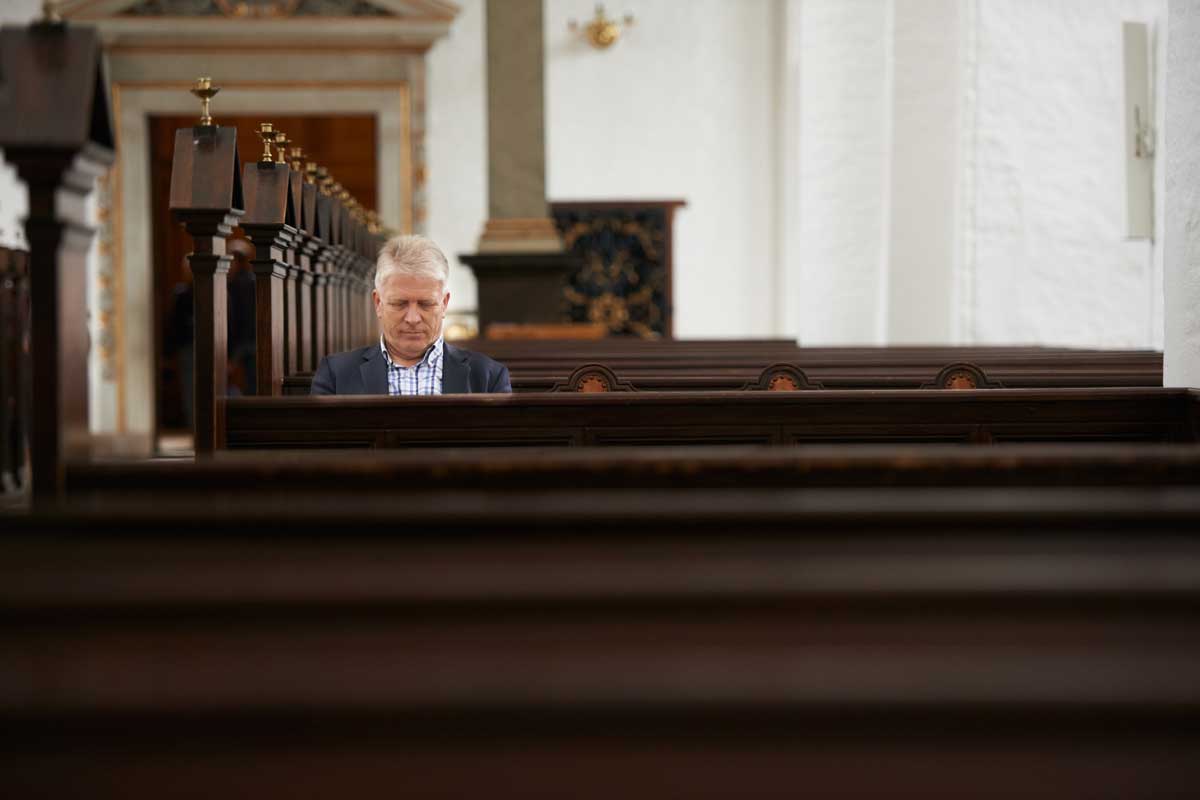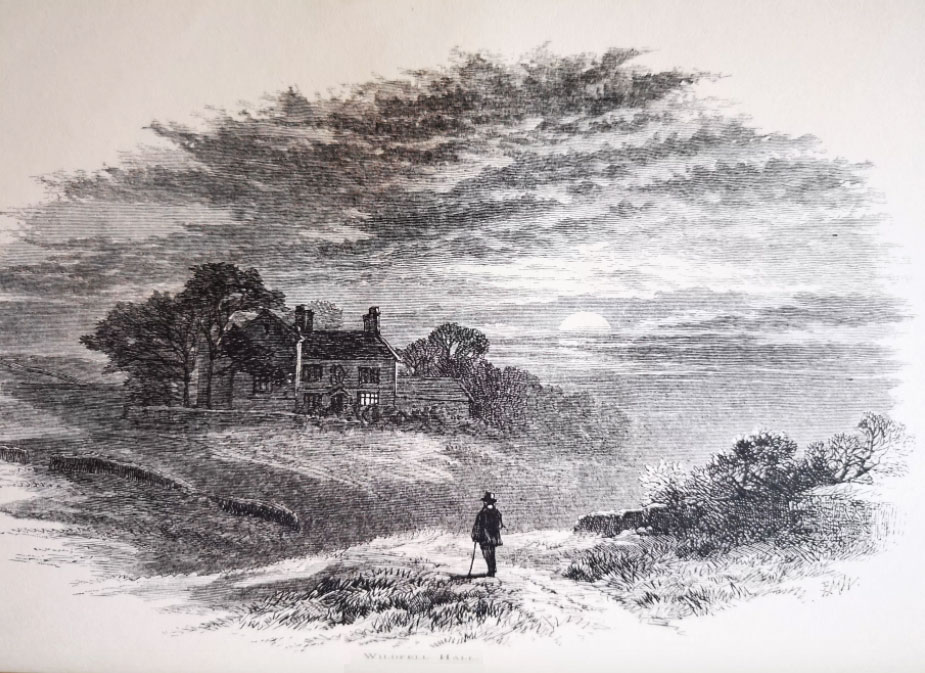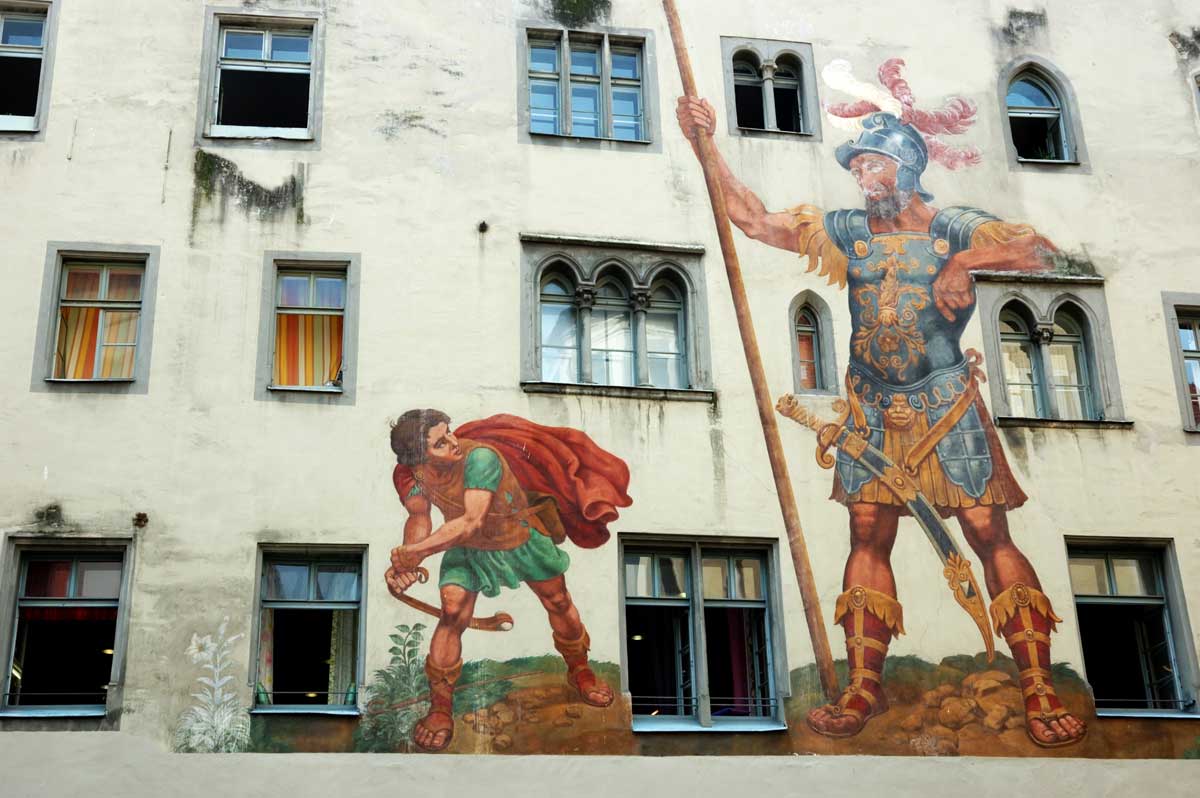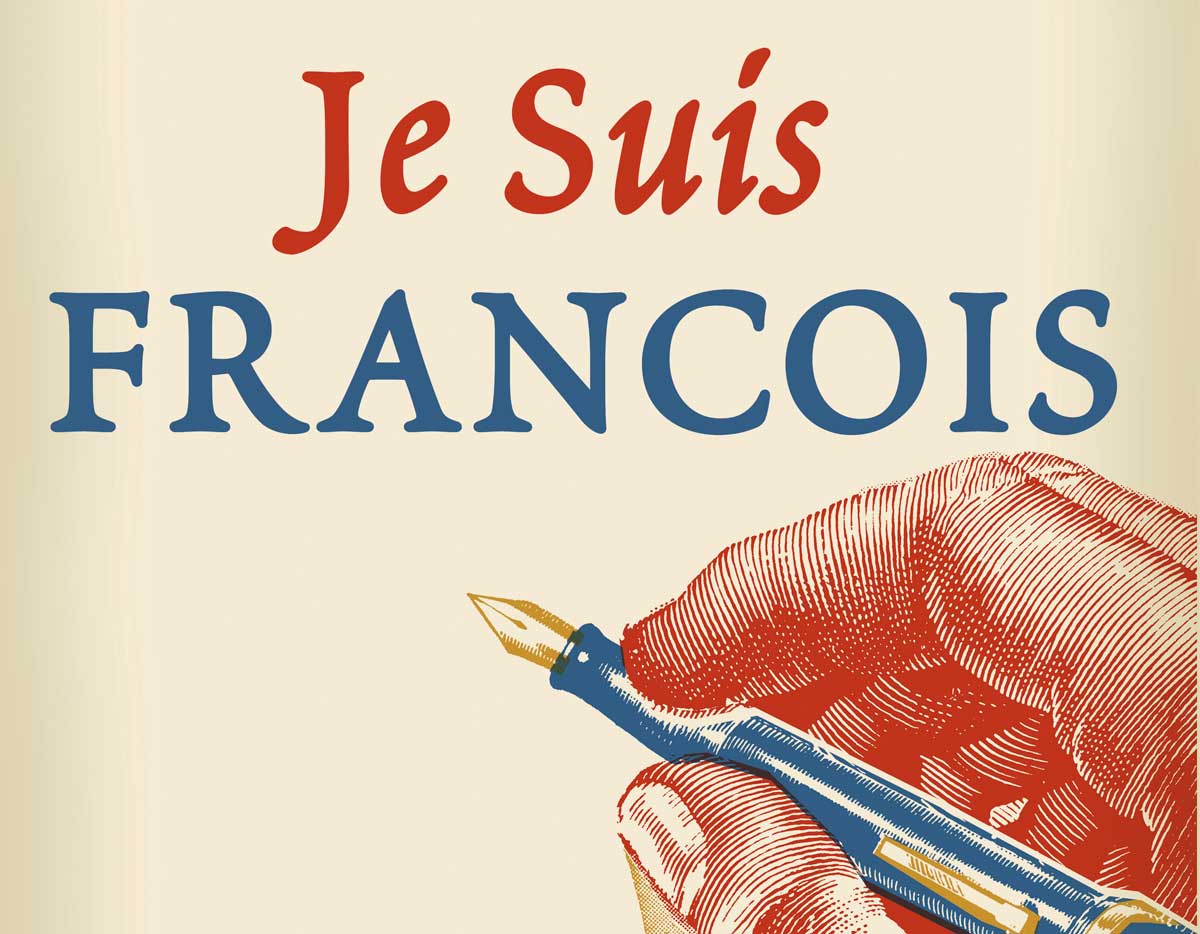Feature
The Christian Heart of Fatherhood
The Place of Marriage, Authority & Service in the Recovery of Fatherhood
The smell of the anesthetic gas, ether. The speck of a glowing orange ember in a black night. The pervasive smell of cigar smoke. Sights and smells that are sources of enduring comfort to three old men. Sights and smells that evoke a father’s love.
The cardinal archbishop who greeted me had grown frail with the years but had an intellect and wit as keen as a young man’s. At one point in our conversation he began to reminisce.
“You know,” he said, “my father would come home every day for lunch. I would look forward to his coming through the door because he would always pick me up in his arms and hold me. He was a dentist, and he often smelled of the ether he used to anesthetize his patients. To this day I feel secure and reassured when I smell ether.” There is probably not another human being who holds that sentiment, but this venerable cardinal does because he associates it with the love of a father.
It was dusk. I sat beside the bishop on the back porch of his residence out West. He leaned back in his chair and lit a cigar. The smoke wisped about his head. He slipped into revery as though the smoke were a trigger for memories past. “I grew up in Chicago,” he said. “Every Saturday morning we kids had to clean the house. We swept down the stairs, washed floors and windows, polished furniture. After lunch, with the spotless house smelling as fresh as a spring morning, my father would turn on the baseball game on the radio, settle into his favorite chair, and light up his cigar. To this day I cannot smell cigar smoke without a sense of security and peace.”
I was probably five years old. The evening church service was over and I had gone off to play with my friends in the crowd. Slowly the parishioners began to drift off into the night with their families. The church lights were turned off and I finally found myself standing beside a few strangers finishing their conversations. The night was black and I could barely see the outline of the church across the street. I began to panic. Where were my parents? Had they forgotten me? Did they leave without me? Who were these people beside me? I was about to break into tears, afraid to speak to the few remaining strangers, when I saw a tiny orange light swinging back and forth as it moved forward in the blackness across the street. I saw nothing but the orange dot. I could not see anyone with it. But I somehow, instinctively, inchoately, recognized the motion of my father’s hand holding a cigarette as it swung at his side as he walked. To this day, fifty years later, I remember the sense of joy, of relief, of excitement. I knew it was my father, even though I could see nothing of him. I knew I was okay, I was safe, I was secure.
Attenuated Fatherhood
Today sociologists and psychiatrists and researchers have to publish reports with the quantifiable, statistical data of their studies to try to convince society that fathers have a critically important role to play in the lives of families and in forging a just and humane social order. Somehow that which has been universally celebrated in myth, reinforced in parables, acclaimed in song, depicted in statuary and painting, nurtured in human hearts, and cherished in unfading memories is somehow not true unless it can be reduced to statistical analysis.
Emily Rosenbaum of Columbia University and Denise B. Kandel of Columbia and the New York State Psychiatric Institute wrote on drug abuse and teenage sexual activity a number of years ago. “Several studies support the importance of family structure on precocious sexual activity. The likelihood of early sex is consistently higher among adolescents living in [a] non-intact [rather] than in an intact family. . . . Furthermore, the emotional turmoil of a divorce or separation may prompt the teenager to seek comfort outside the home.” In other words, it would seem that if the State wanted to reduce teenage sexual promiscuity and the accompanying threats of illegitimate children or the dangers of abortion or the spread of AIDS, it would do all in its power to strengthen families rather than undermining them through no-fault divorce and granting the privileges of marriage to homosexual relationships.
Dr. Thomas Ewin Smith of the University of South Carolina did an extensive survey of the relevant literature and wrote:
There is considerable evidence . . . that lower academic achievement of children and adolescents is related to parental divorce . . . [M]ajor reviews of relevant research . . . have found that children from two-parent families have higher measured mental aptitude, academic achievement, and school grades than those from one-parent families . . . being in a one-parent family significantly reduced the reading and mathematics achievement scores of both white and black elementary school students.
subscription options
Order
Print/Online Subscription

Get six issues (one year) of Touchstone PLUS full online access including pdf downloads for only $39.95. That's only $3.34 per month!
Order
Online Only
Subscription

Get a one-year full-access subscription to the Touchstone online archives for only $19.95. That's only $1.66 per month!
bulk subscriptions
Order Touchstone subscriptions in bulk and save $10 per sub! Each subscription includes 6 issues of Touchstone plus full online access to touchstonemag.com—including archives, videos, and pdf downloads of recent issues for only $29.95 each! Great for churches or study groups.
Transactions will be processed on a secure server.
more on fatherhood from the online archives
more from the online archives
calling all readers
Please Donate
"There are magazines worth reading but few worth saving . . . Touchstone is just such a magazine."
—Alice von Hildebrand
"Here we do not concede one square millimeter of territory to falsehood, folly, contemporary sentimentality, or fashion. We speak the truth, and let God be our judge. . . . Touchstone is the one committedly Christian conservative journal."
—Anthony Esolen, Touchstone senior editor





